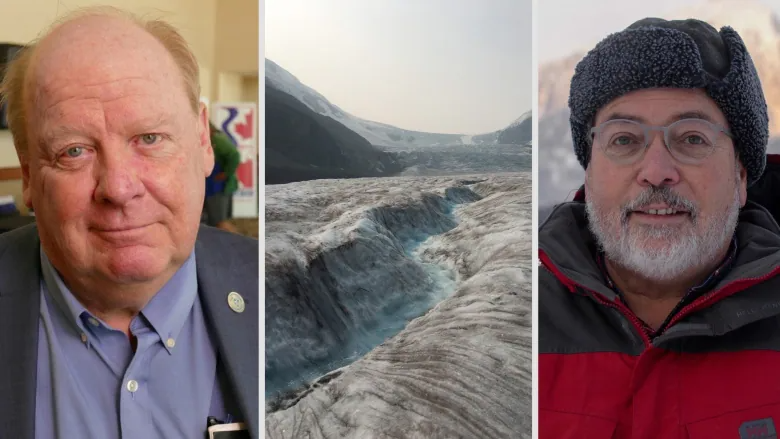Thousands of the world's large dams are so clogged with sediment that they risk losing more than a quarter of their storage capacity by 2050, UN researchers said Wednesday, warning of the threat to water security. A new study from the UN University's Institute for Water, Environment and Health found that, by mid-century, dams and reservoirs will lose about 1.65 trillion cubic metres of water storage capacity to sediment.
UN to recognize glacier preservation in 2025 thanks to Canadian researchers
The United Nations General Assembly has adopted a resolution to declare 2025 the International Year of Glaciers' Preservation — a concept Coldwater Lab director John Pomeroy says is rooted close to home in Canmore, Alta. The declaration is something researchers in Canada hope will help wake up the world that it needs to change course. More than symbolic, it's a year when scientists will release findings and share climate models and projections linked to the disappearance of glaciers, and conferences will raise the profile of this issue.
Iconic glaciers of Kilimanjaro, Yellowstone to disappear by 2050 due to global warming: UN
Some of the world's most famous glaciers, including in the Dolomites in Italy, the Yosemite and Yellowstone parks in the United States, and Mount Kilimanjaro in Tanzania are set to disappear by 2050 due to global warming — whatever the temperature rise scenario, according to a UNESCO report. UNESCO, the United Nations cultural agency, monitors some 18,600 glaciers across 50 of its World Heritage sites and said that glaciers in one-third of World Heritage sites will disappear by 2050 regardless of the applied climate scenario.
The UN just recognized access to a healthy environment is a universal human right. It’s time for Canada to take action
The authors are all professors at the University of British Columbia’s Institute for Resources, Environment and Sustainability. David Boyd is also the UN Special Rapporteur on human rights and the environment. The world’s future became a little bit brighter recently. On July 28, for the first time in history, the United Nations General Assembly recognized that everyone, everywhere, has a right to live in a clean, healthy and sustainable environment. Now it’s time for Canada to step up and take action to ensure that right for all its citizens.
Still hopeful after all these years
When I was teaching political science at Langara College in Vancouver, some of the most memorable events were the half dozen teleconferences Noam Chomsky did with my students. During one such discussion of international trade treaties in 2012, Chomsky singled out the work of Maude Barlow, then chair of the Council of Canadians, as being instrumental in defeating the proposed “corporate bill of rights” known as the Multilateral Agreement on Investment.
The importance of global water quality and access
Clean drinking water is a critical component for sustainable development—from poverty reduction to economic growth and environmental sustainability. Currently, according to the United Nations (UN) there is a global water crisis affecting almost 2.2 billion people who lack access to safe water. To raise awareness of the crisis and support the global work advancing Sustainable Development Goal 6: Clean Water and Sanitation the UN identified March 22 as World Water Day.
From degrees to drops: Putting water on COP26’s agenda
Water will be on every lunch and dinner menu at the upcoming international climate conference COP26 — but it won’t be on the agenda. That’s not for lack of effort at Copenhagen in 2009, Lima in 2010 or Paris in 2015, where a separate “Paris Pact” addressing water was not formally adopted. Even events hosted by the UN, which formally recognized water as a human right in 2010, tacitly treat water as a commodity. Between droughts, floods, and fires, it should be clear this is not enough. Not only should we measure the changing surface temperature of our planet in degrees, we must count every drop.
UN report warns climate change could spell global water crisis
Much of the world is unprepared for the floods, hurricanes and droughts expected to worsen with climate change and urgently needs better warning systems to avert water-related disasters, according to a report by the United Nations' weather agency. Global water management is “fragmented and inadequate,” the report published Tuesday found, with nearly 60% of 101 countries surveyed needing improved forecasting systems that can help prevent devastation from severe weather.









